Connecting With Nature at EcoCamp Patagonia
An Origin travel curator discovers how sustainability and community shine at this one-of-a-kind campsite in Chile.
I would call myself a “casual camper.” As a child, camping trips among the big trees of California were a summer tradition, but as a globetrotting adult, the illusory simplicity of camping is tempered by the need for equipment: a tent, sleeping bags, flashlights, meals, and so on. When I started planning my trip to Torres del Paine National Park in Chile, I knew there was no shortage of breathtaking properties to choose from, but I yearned to experience Patagonia in the most natural way that was realistically possible.
Enter EcoCamp. I don’t want to give the impression that I was roughing it, because there’s nothing rough about EcoCamp. Guests sleep in their own private yurts, all of which come with a view of the jagged Torres themselves. “All-inclusive” here refers to your meals and experiences, whether that’s a boat ride to Glacier Grey or the seven-day W trek. Dinner is an exquisite three-course meal served with Chilean wines, but somehow the bagged lunches prepared for your excursions were equally exciting.
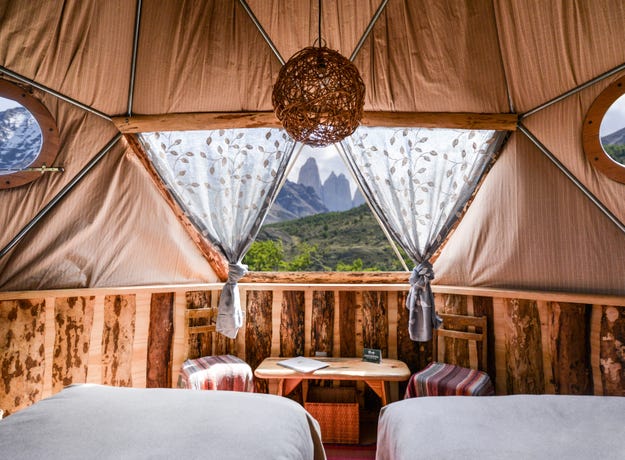
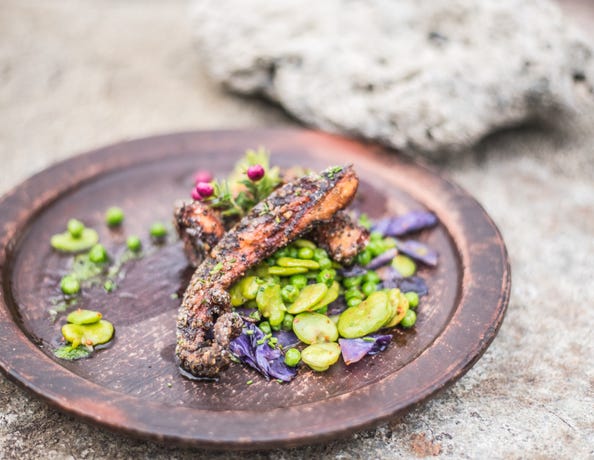
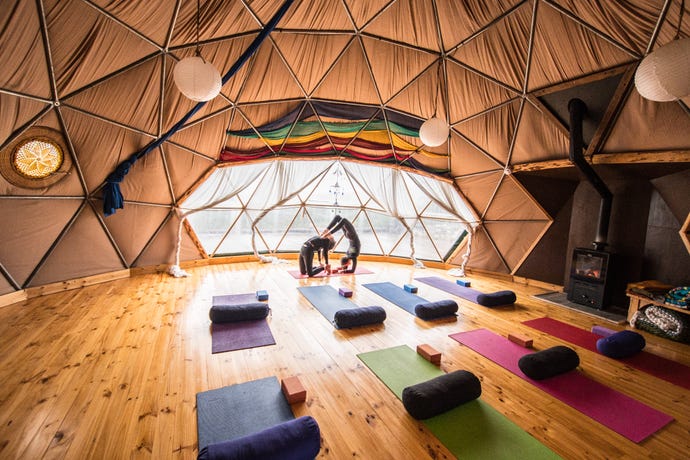
It wasn’t the camping experience I expected, but EcoCamp spoiled me to never want to camp any other way.
On the long list of items that impressed me about EcoCamp, above all else was the genuine commitment to protect its surroundings. The founders, a group of born-and-raised Chileans, clearly consider their responsibility to the environment just as important as their responsibility to their guests. Some of those measures are in plain sight, such as the vegetable garden, composting toilets, and solar panels, but there’s also so much more that goes on behind the scenes.

For example, typical campsite bathrooms can leech harmful toxins into the ground and water supply, but EcoCamp’s compost system uses biofiltration so only clean waste is released. And while up to 100 percent of the energy that powers the camp is renewable, the solar panels are only a small part of that; there’s an entire room of water turbines that harness energy from rivers and snowmelt. It’s truly worthwhile seeing all of these mechanisms at work, and the staff is more than happy to show off their accomplishments on an Eco Tour.
I admit that I arrived in Patagonia with the preconception that camping is to connect with nature and disconnect from other humans, but EcoCamp proves those aren’t mutually exclusive notions. First of all were the guides, many of whom are local to the surrounding Magallanes region. After just a day or two, they quickly know your name and you know all of theirs, and it feels like you’re just hanging out with your very cool outdoorsy friends who have an impressive range of knowledge from plate tectonics to puma tracking.
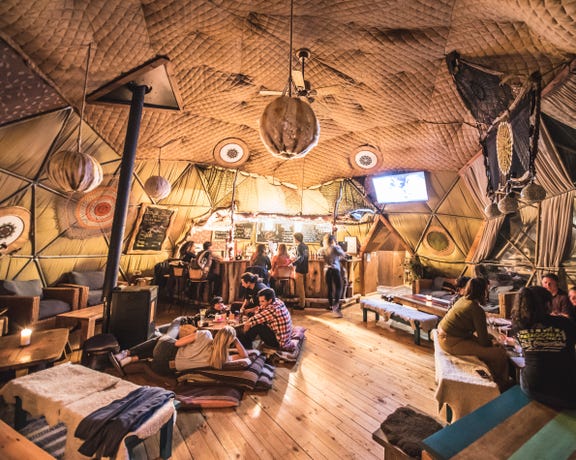
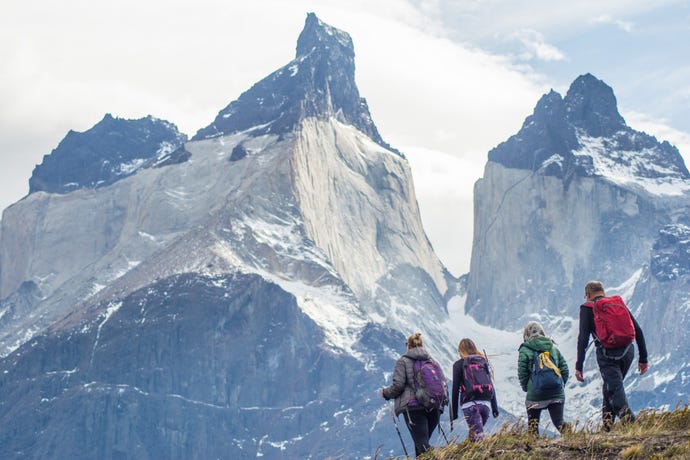
Bonds are created with the guides and your fellow guests. Community is at the core of your stay, from morning breakfast with your excursion group to after-dinner pisco sours in the tented bar. It took me back to those childhood camping trips, when friends and family gather around a communal campfire, sharing meals and stories. I still cherish those distant memories, and now I’ll cherish the new ones I’ve made in Patagonia.

Request a trip today to start planning your trip to Chile. Your Origin curator will create a personalized itinerary just for you.